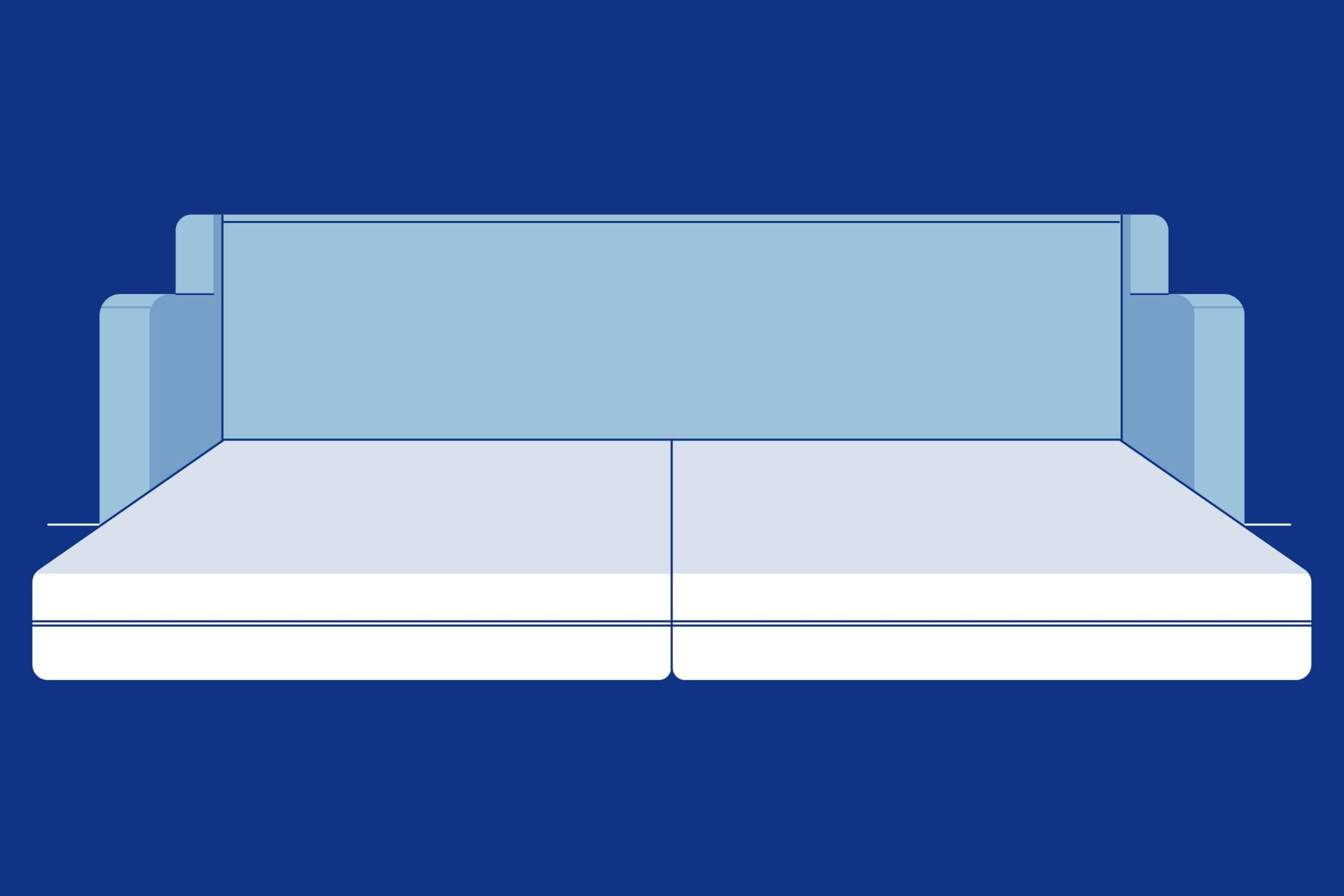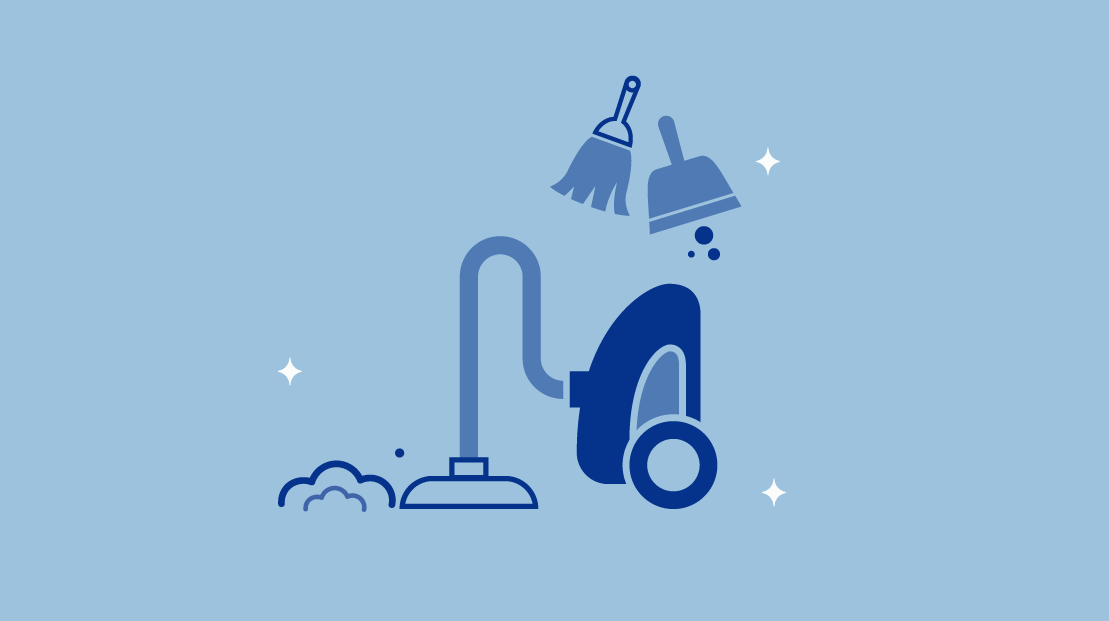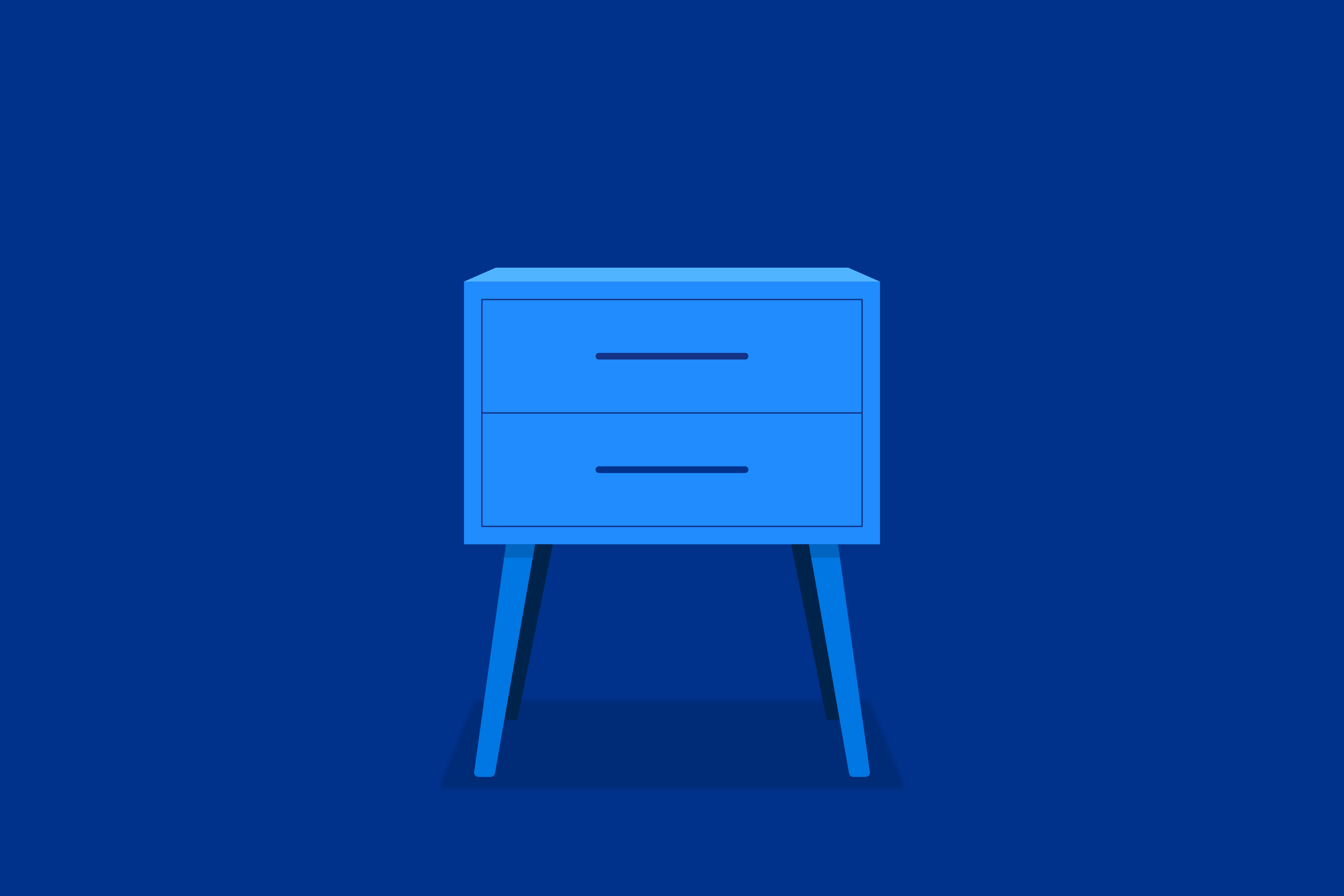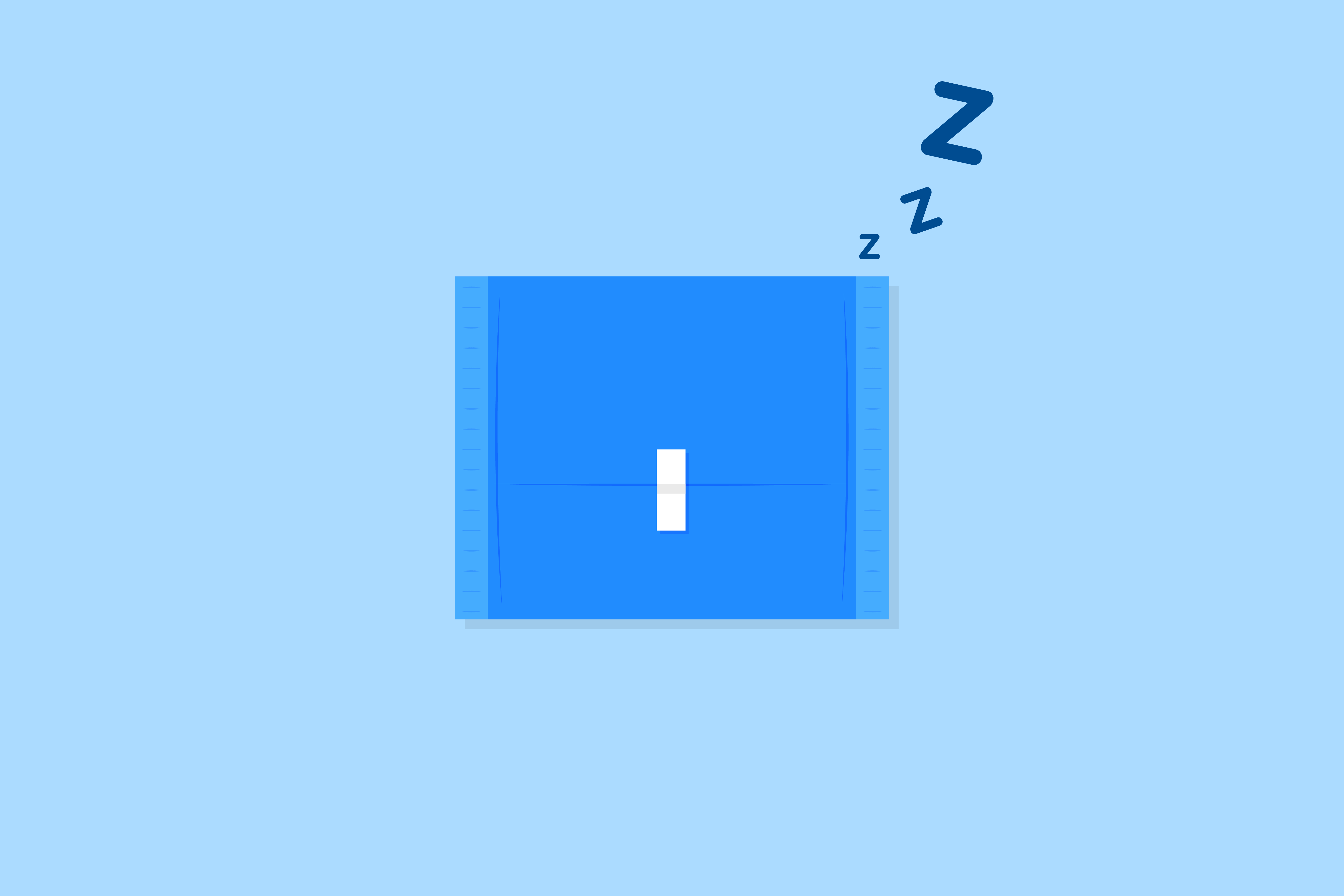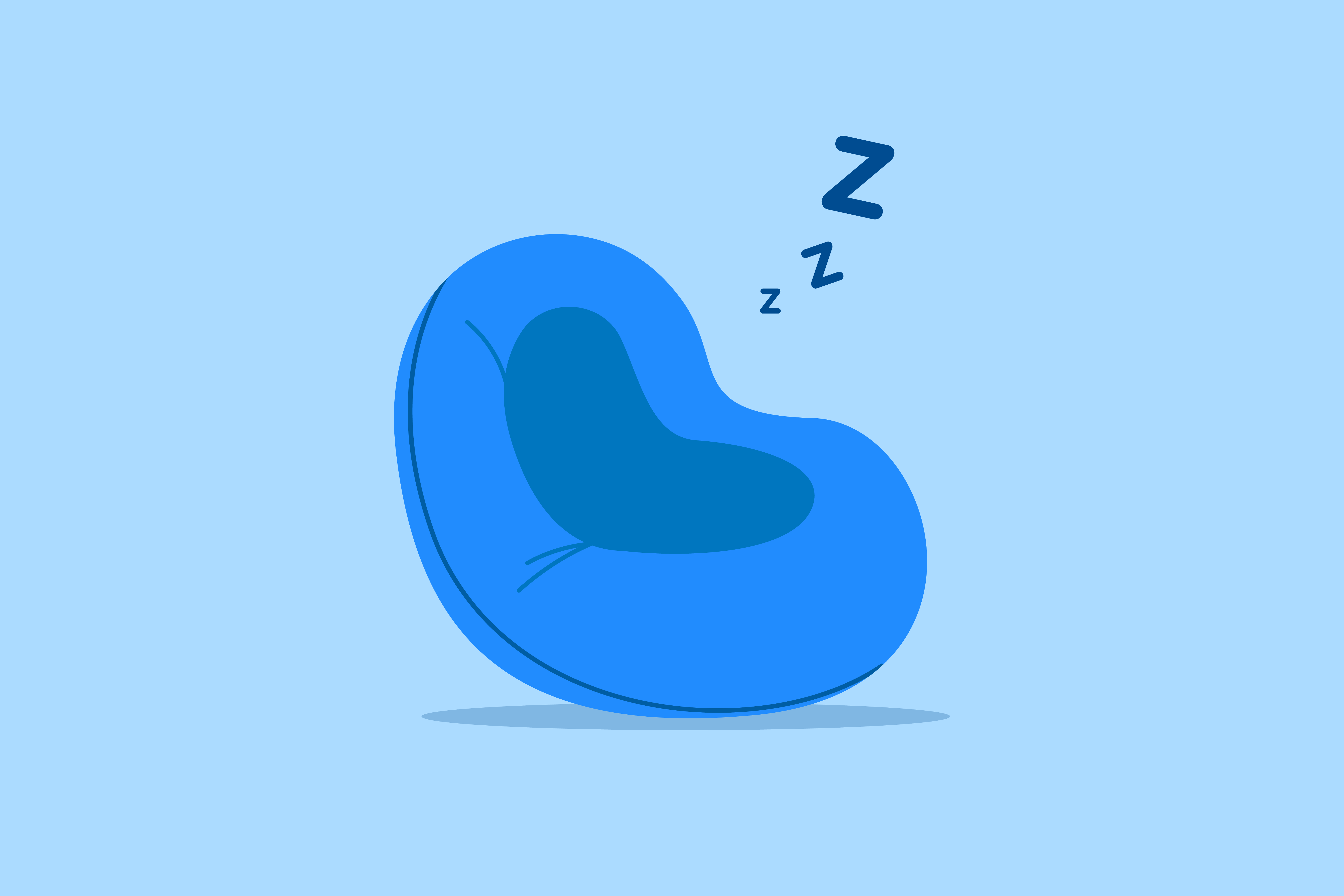Key Takeaways
- Effects of Couch Sleeping: While the convenience and immediate comfort of a couch or sleeper sofa might be tempting, sleeping on them can lead to discomfort, disrupted sleep quality, and poor sleep posture. Long-term, it can result in poor quality sleep, bad posture, and an increased risk of neck and back problems. Couches can also collect allergens such as dust and pet dander, leading to allergies and nasal congestion.
- Comparison of Couch and Bed: While couches offer immediate comfort and relaxation, they lack the proper ergonomic support needed for restful sleep. Beds are designed to provide full-body support, spinal alignment, and comfort for extended periods. Proper beds are the better choice for achieving deep, refreshing sleep that promotes physical and mental well-being.
- Tips for Avoiding Couch Sleep: To overcome the habit of sleeping on the couch, establish good sleep hygiene practices. Maintain a regular sleep schedule, engage in relaxing activities before bedtime, and address the issues that lead to couch sleeping.
A comfortable night’s sleep, preferably on a memory foam mattress, is the cornerstone of good health. And where you sleep can significantly impact it.
As tempting as it may be to surrender to the inviting cushions of your sleeper sofa or sofa bed after a long day, it’s crucial to consider the potential health impacts.
Is sleeping on a couch, even one of the best sleeper sofas or sofa beds, detrimental to your health? Let’s find it out.
Why Sleep on the Couch?
People find themselves sleeping on a couch or sleeper sectional for various reasons. It could be a long day that had you slumped over your comfy couch, gradually transitioning from watching TV to unintentionally drifting into slumber.
The convenience and immediate comfort that a couch or sofa bed provides are inviting, making it a frequent nap hub or even an alternative to an air mattress for many.
Alternatively, the rhythmic symphony of your partner’s snoring driving you from the shared bed or twin sleeper might make you consider the couch. Perhaps, you have overnight guests occupying your bed, or you’re looking for a cooling reprieve from a bed that traps heat or to sleep downstairs to stay cooler and sleep during a heatwave.
Some may even choose the couch or a sleeper sectional to evade disturbances from a restless partner or to sneak in some late-night reading or television without disturbing others.
Short-Term Effects of Sleeping on the Couch
Even the best sleeper sofas can be pretty tempting, but they’re a pain – literally. Think about it. Sleeper sofas aren’t made for a full night’s sleep or promoting good sleep posture. Verified Source National Library of Medicine (NIH) World’s largest medical library, making biomedical data and information more accessible. View source
So you’re twisting and turning, trying to get comfortable on your sofa bed. You wake up with an aching back or a stiff neck — not a great way to start the day.
And it’s not just the discomfort. Sleeping on a couch or sleeper sectional messes with your sleep quality, too.
Even the best sleeper sofas are soft and cozy, but they lack the support that a twin sleeper or a memory foam mattress offers. So you’re not getting that deep, refreshing sleep your body needs to repair and recharge.
Sleeping on the couch can lead to some bad habits. Like falling asleep with the TV on, which can mess up your internal clock. Or getting your brain used to sleeping outside of the bedroom. That’s no good.
You need to keep your bedroom as a sleep sanctuary so your brain knows it’s time to power down when you hit the bed or your twin sleeper. So yeah, sleeping on the couch or sofa bed? Not a great idea.
Long-Term Effects of Sleeping on the Couch
Couches seem comfy and inviting, but they are for sitting rather than for sleeping (and it’s best to avoid doing both and sleeping while sitting on the couch). This may seem obvious, but many ignore it. Here’s why you shouldn’t sleep on the couch regularly.
Poor Quality of Sleep
Sleeping on the couch often means poor sleep. Couches aren’t designed for the body to rest. Lack of support leads to tossing and turning. You won’t achieve deep, restful sleep.
Poor Posture
Sleeping on the couch affects your posture. It doesn’t encourage the correct alignment of the body. Over time, this leads to poor posture.
“One of the underlying causes for sleep disturbances at night is a poor sleep posture,” says Dr. Nayantara Santhi. “This can often result from a sagging mattress or one that is too firm, which can exacerbate joint and muscle pain. A good sleeping space is one that support ones lying posture in a way that allows for muscle recovery during sleep.”
“Therefore, a good sleeping mattress is important and for the same reason, a couch is not a good sleeping space. Couches are rarely made for sleeping, they are usually made for sitting.”
It doesn’t just affect your posture either, but your chances of neck and back problems. Couches don’t support your spine well. Long-term, Verified Source National Library of Medicine (NIH) World’s largest medical library, making biomedical data and information more accessible. View source this leads to aches and pains. You risk developing chronic neck and back problems.
Poor sleep posture can also incur other risks, such as sleep apnea—a serious condition that affects overall health. The symptoms of sleep apnea can worsened by how you sleep, and while couch sleeping may be fine if you sleep upright Verified Source National Library of Medicine (NIH) World’s largest medical library, making biomedical data and information more accessible. View source to reduce snoring, it’s better to do so with an adjustable bed or a wedge pillow.
Allergies
Couches collect dust, pet dander, and other allergens. Verified Source National Library of Medicine (NIH) World’s largest medical library, making biomedical data and information more accessible. View source Regular exposure may increase allergies. This can disturb your sleep and health.
For example, you might experience nasal congestion and stuffiness due to the body’s immune response to allergens. This congestion can make it difficult to breathe through the nose, leading to mouth breathing during sleep, which can result in morning dry mouth and throat.
Mouth breathing may also increase the risk of snoring and sleep apnea, already a risk for couch sleepers, disrupting the quality of sleep. While there are ways to minimize this with mouth taping and other practices, the mucus from your congestion can drip down the back of the throat. This can trigger coughing and throat irritation, further disrupting sleep and leading to a feeling of constant throat clearing.
Mental Health Impact
Poor sleep can affect your mood and cognition Verified Source National Library of Medicine (NIH) World’s largest medical library, making biomedical data and information more accessible. View source It can lead to increased stress, anxiety, and depression.
In short, good sleep is crucial for mental health. While occasional couch naps can fine, avoid making it a habit. Protect your health and invest in good sleep. A comfortable, supportive bed is the best place for your nightly rest.
An older 1988 overivew Verified Source National Library of Medicine (NIH) World’s largest medical library, making biomedical data and information more accessible. View source discussed how reports of sleeping on the couch have mostly focused on its connection to early childhood experiences and the way it can serve as a defense mechanism.
While that research is old enough to question its accuracy or relevancy, sleepers may still wish to untangle a persistent desire to sleep on a couch with a therapist.
The Couch vs. The Bed: A Comparative Analysis
When it comes to kicking back and relaxing after a long day, there are two primary contenders in every household: the trusty couch and the welcoming bed.
The very design of the couch and bed differs significantly, catering to their respective primary purposes: socializing and sleeping. A bed is typically designed with a focus on full-body support and comfort for an extended period, whereas a couch is more about providing a spot for short-term relaxation.
Beds are structured to give support to the spine, neck, and limbs, while couches, although comfy, offer a different degree of ergonomic support.
Your favorite couch, with its deep cushions, might feel like the perfect place to crash, but over time, this lack of support in your sleeping space could lead to discomfort or even pain. So, as a general rule of thumb, your bed trumps the couch when it comes to the best location for a night of restful sleep.
What About Sleeper Sofas?
A sleeper sofa, also known as a sofa bed or pull-out couch, is a type of furniture that serves a dual purpose – it functions as both a regular sofa and a bed. The key feature of a sleeper sofa is its ability to transform into a bed when needed. This makes it a versatile and space-saving option for homes, especially in smaller living spaces or rooms where a separate bed may not be feasible.
The design of a sleeper sofa typically involves a hidden mattress that can be pulled out or unfolded from within the sofa’s frame once the seat cushions are removed. This mattress can be more comfortable than just sleeping on a standard couch, but it’s often not as thick or supportive as a mattress on a bed, due to its foldable design.
A trundle sleeper sofa is a variation with an additional space-saving feature. In addition to the hidden mattress that can be pulled out from the sofa’s frame, a trundle sleeper sofa also has a trundle bed stored underneath the main seating area. It’s usually on wheels or casters, making it easy to slide in and out from underneath the sofa. As with sleeper sofas, trundle bed mattresses typically aren’t as comfy as standard beds due to their thinner design.
If you want a multifunctional piece of furniture for sleeping or sitting, the better option may be a daybed. Daybeds often allow you to use a regular mattress with the frame, so you can lounge about during the day and still curl up for some good sleep at night.
Tips for Avoiding Couch Sleep
If you’ve fallen into the habit of sleeping on the couch, it’s essential to break it for the sake of your health. Remember, overcoming couch sleep may take time. Be patient with yourself and make these changes gradually. Good sleep is worth the effort. It benefits not just your physical health but your mental well-being too.
Here’s how you can do it.
Good Sleep Hygiene
Establishing a regular sleep schedule is vital. Aim to sleep and wake up at the same time each day. A routine signals to your body when it’s time to sleep. Include relaxing activities before bedtime. These could be reading, meditating, or taking a warm bath.
Address the issues that lead to couch sleep. If it’s late-night TV watching, set a timer to turn off your TV automatically. If it’s because of a snoring partner, consider soundproof earplugs or background noise.
Optimized Bedroom
Turn your bedroom into a haven for sleep. Make it comfortable and inviting. A peaceful environment will make your bedroom the go-to place for sleep. Investing in a good quality mattress and pillows is a start, but there’s more to do:
- Ensure your room is dark, quiet, and cool. If needed, block out noise with soundproof wall panels and such.
- Keep electronics out for a tech-free bedroom, too.
- For difficulties sleeping alone, a weighted blanket may provide comfort.
If you want to overhaul your space with a bedroom makeover, here are a few guides that can help you start:
- Fire Safety in the Bedroom
- Best Bedroom Colors for Sleep
- Getting the Bedroom Ready for Summer
- Creating a Calm, Clutter-Free Bedroom
- Eight Tips for a Healthy Bedroom Environment
- How to Make a Small Bedroom Look Bigger
FAQs
Why is sleeping on the couch bad for your health?
Sleeping on the couch often lacks the support needed for your spine, which can lead to back and neck pain. It can disrupt sleep quality due to discomfort or noise, which over time, may contribute to sleep deprivation, negatively impacting overall health.
Can sleeping on the couch lead to chronic back pain?
Yes, it can. Couches aren’t designed for regular sleeping and lack proper support for your spine, leading to awkward sleeping positions. Over time, this can result in chronic back pain due to the strain and improper alignment of the spinal column during sleep.
Can sleeping on the couch worsen existing health conditions?
Absolutely, sleeping on a couch can aggravate existing health conditions. For example, individuals with respiratory issues may find their symptoms worsened due to potential allergens on the couch. Moreover, poor support can exacerbate pain and discomfort from conditions like arthritis, sciatica, or herniated discs.
Is it better to sleep on the floor or couch?
Both sleeping on the floor and sleeping on a couch have their pros and cons. Sleeping on the floor, “shikibuton” sleeping, is a traditional practice in some cultures and has gained popularity for its potential health benefits. It can promote better posture, spinal alignment, and may help alleviate back pain for some individuals. However, floor sleeping may not be comfy for everyone. It might be especially challenging for people with mobility issues.
On the other hand, sleeping on a couch provides immediate comfort and convenience, especially for short naps or relaxation. However, couches are not designed for a full night’s sleep and may lack the necessary support for proper rest. Prolonged sleeping on a couch can lead to discomfort, affect sleep quality, and cause neck or back problems.
Is it better to sleep on the couch or air mattress?
An air mattress, when properly inflated, can offer better support and comfort compared to most couches. Couches, even sleeper sofas, are designed for short-term relaxation and may lack the necessary support for a good night’s sleep. Sleeping on a couch regularly can lead to poor sleep quality, potential neck or back problems, and disrupted sleep routines.
If given the choice between sleeping on a couch or an air mattress, the air mattress is generally the better option for promoting restful sleep and overall comfort. However, for long-term use, investing in a high-quality mattress and bedding is recommended for optimal sleep health.
Conclusion
A comfortable night’s sleep is essential for good health, and where you sleep can significantly impact it. While it may be tempting to doze off on the couch or a sleeper sofa, it’s crucial to consider the potential health impacts, just as you might consider the disadvantages of an old mattress that needs replacing.
Sleeping on the couch, even the best sleeper sofas, can have short-term and long-term effects on your well-being. It may lead to discomfort, poor sleep quality, and even neck or back problems due to lack of support. Additionally, sleeping on the couch can disrupt your sleep routine, affect your posture, and increase the risk of allergies and sleep apnea.
On the other hand, a bed is designed to provide full-body support and comfort for an extended period, making it the better choice for a night of restful sleep. For those looking for a multifunctional furniture piece, daybeds with regular mattresses may be a more comfortable alternative to sleeper sofas or trundle sleeper sofas.
About the author
April Mayer is a sleep expert and writer with a degree in exercise physiology. She has dedicated her career to exploring the relationship between sleep and productivity. Her insightful articles, such as "The Surprising Way Your Mood Might Be Messing With Your Productivity" and "Wake Up to More Productive Mornings," have been featured in reputable publications like Forbes, Greatist, Real Homes, Thrillist, Tom's Guide, and Eat This, Not That. With a passion for helping others lead more productive lives through restful sleep, April offers valuable expertise on foods and vitamins for better sleep. As a trusted member of the Early Bird team since March 2020, she continues to provide informative and well-researched content.
View all posts